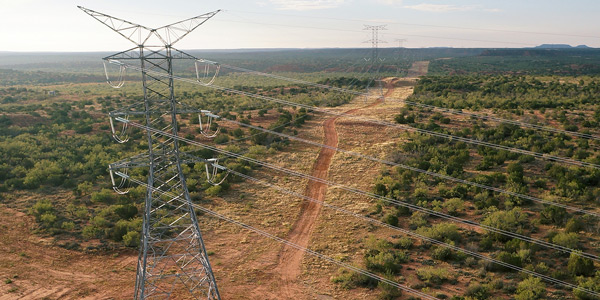By Tom Kleckner
The Texas Legislature on Tuesday passed legislation giving incumbent utilities the right of first refusal (ROFR) to build transmission projects in the state.
The House passed a final reading of Senate Bill 1938 by a 139-5 margin. The bill, which passed the Senate 31-0 on April 17, was substituted for the House’s identical version.
The bill now awaits Gov. Greg Abbott’s signature before becoming law. It would become effective immediately, thanks to an “emergency” rider.
The legislation grants certificates of convenience and necessity (CCNs) to build, own or operate new transmission facilities that interconnect with existing facilities “only to the owner of that existing facility.” (See Texas ROFR Legislation Pits Incumbents, Transcos.)
Rep. Dade Phelan, a sponsor of the bill, told representatives the bill will “ensure the Public Utility Commission, and not the federal government, will have jurisdiction over Texas transmission rates.”
ERCOT is not subject to FERC jurisdiction. However, parts of West Texas and East Texas lie in the SPP and MISO footprints, respectively.
Opponents of the legislation argue it would undercut competition in the state, making it illegal for anyone other than incumbent utilities to build new transmission and eliminate the Texas Public Utility Commission’s authority to license new entrants to build transmission assets and provide transmission services.
“We are confident that the transmission industry is moving toward more competition,” GridLiance spokesperson Vera Carley told RTO Insider. “It is clear that ratepayers will increasingly advocate for more competition in the transmission industry once they see the effect of competition on costs.”
GridLiance cited a Brattle Group study it commissioned that indicated competitive projects under FERC Order 1000 have come in at an average of 40% below initial estimates. The study noted 15 projects have been selected through ISO/RTOs’ competitive processes, but none of the projects have yet to be completed.
The bill’s passage also means NextEra Energy Transmission will likely lose its winning bid for the Hartburg-Sabine Junction 500-kV project in East Texas, which it received last year from MISO. The PUC has yet to grant the project a CCN.
Among those voting against the bill was Rep. Travis Clardy. His inquiry to the Department of Justice’s Antitrust Division resulted in the DOJ filing comments expressing its concern the legislation would limit competition, potentially raise electricity prices and lower the quality of service.
In arguing against the bill, Clardy warned of “protractive” private litigation and potential federal legislation in response to the law.
“There is no urgency or haste. There is no reason to pass this bill now,” he said. “This bill, I don’t believe, has been properly vetted.”
Legislators voting for the bill painted it as a victory for the Texas economy and large power users.





